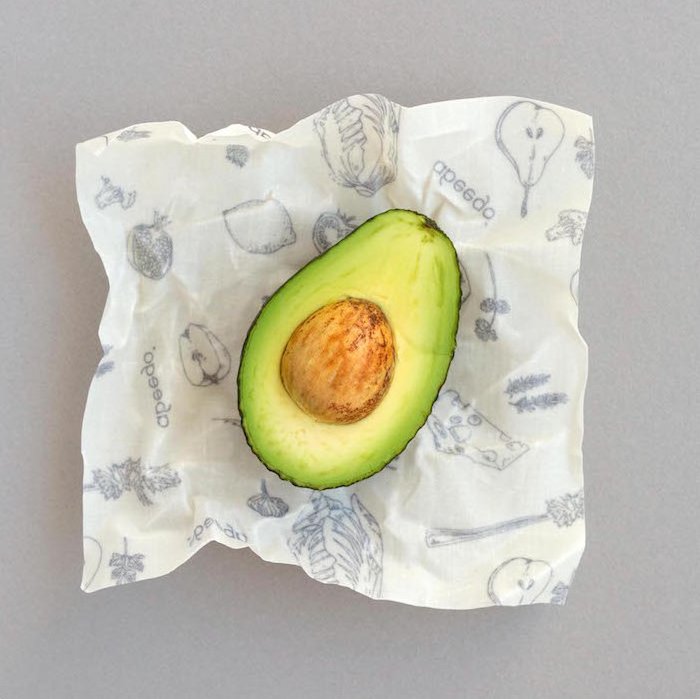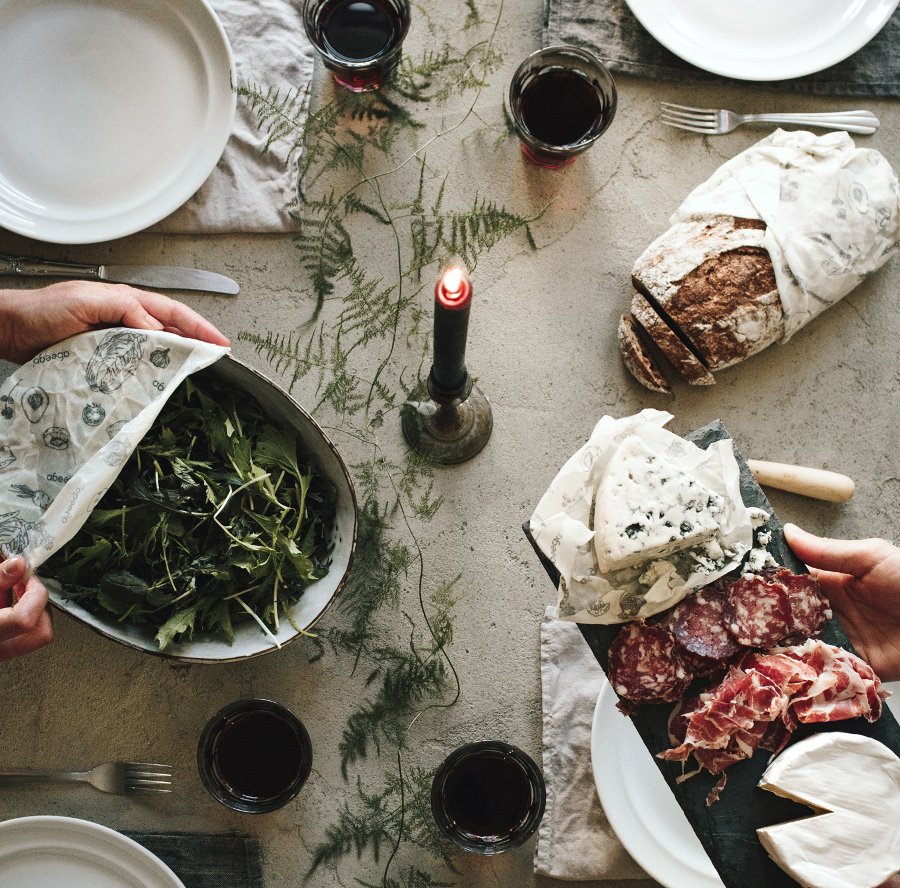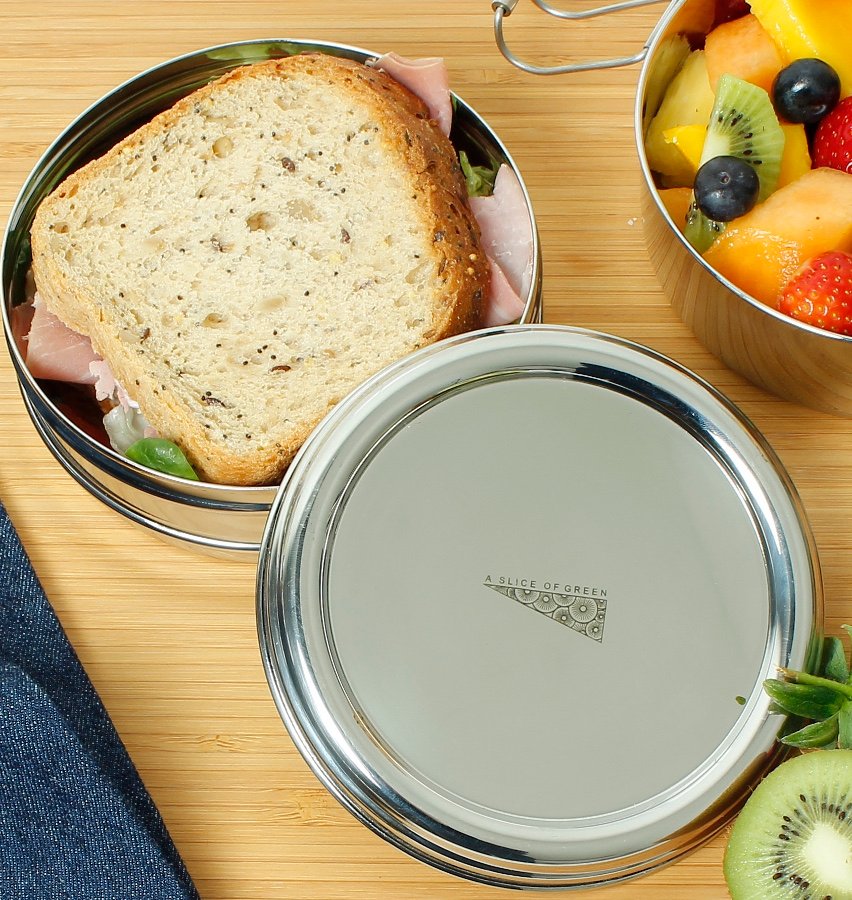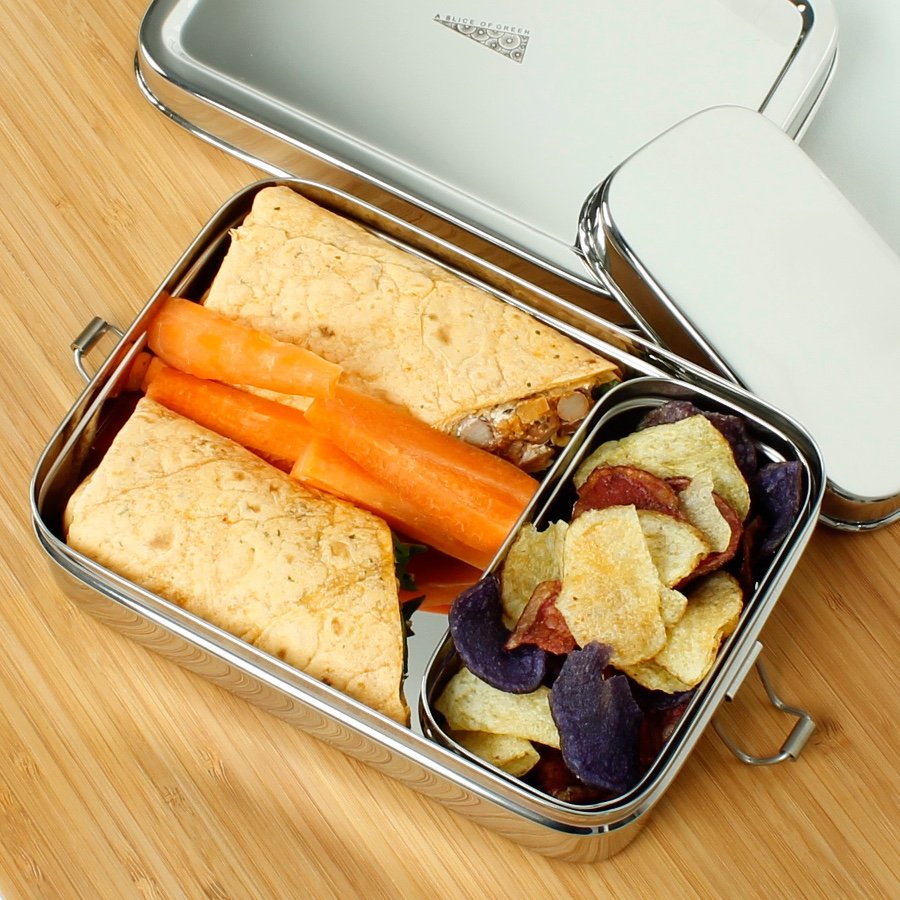Food storage – eco friendly solutions

Food storage is part of our daily lives, we store food to preserve it, to protect it from moisture or dryness, from the cold or the heat, or simply to carry it around. Like me, you most likely need to store food to take to work every day or for your kids to take to school. You also probably wrap food leftovers such as sliced fruits and vegetables or whole meals before storing them in your fridge. The most convenient material that is widely used for this purpose is our well know villain: plastic! Plastic for food storage is most common in the form of cling film or hard plastic containers. The use of these materials can be a danger to your family’s health and also to the environment. Fortunately, there are great eco-friendly alternatives available.
Dangers of food storage in plastic
Health hazard
Several types of plastic wraps and containers include BPA and/or phthalates in their composition. These are toxic chemicals that your stored food can absorb and you can later ingest. Even plastic labelled as non-toxic and BPA-free can be dangerous to your health as we explained in another article which means you should try and avoid using plastic altogether if you can.
Environmental hazard
Plastics pollute oceans and rivers, cause blockages in sewage pipes and increase the severity of flooding, pollute landscapes, the list goes on and on…Plastics are really bad for the environment. They are not biodegradable, so each piece of plastic that you use and throw away will continue to exist and accumulate, causing problems somewhere else for decades. It is really harmful to wildlife as well, it can trap, suffocate and kill animals and corals.

Non-renewable
Plastics derive from petroleum which has limited reserves worldwide and a carbon-intensive extraction process. Once used up, the reserves of petroleum cannot be replenished. Other risks include oil spillages which kill sea life and air pollution from the refining process.
Non-recyclable
Although many types of plastic can be recycled in theory, the majority of plastics used for food wrapping cannot be recycled in practice. Most recycling companies will not accept these materials due to the difficulties and costs to recycle them. This applies to cling film and hard plastic food containers, therefore these will end up in the landfill and potentially in the ocean at some point.
Eco-friendly food storage alternatives
Beeswax wraps
If you are wondering how difficult it would be to replace plastic cling film with a more eco-friendly and healthy alternative you are not alone. However, there are alternative products from a few brands composed of only natural materials such as certified organic cotton, hemp, beeswax, tree resin and jojoba oil. They are more commonly known as beeswax wraps. This material not only protects your food because it is anti-fungal and antibacterial but also, differently from plastic, it allows your food to breathe. You can wash it and use it over and over again. When it is not fit for purpose anymore it is readily biodegradable.


Metal food storage containers
A great alternative to plastic food containers is food-grade stainless steel containers. I personally find that plastic food containers can leave a bit of a taste on the food or accumulate some food smell after a while, even if you clean them thoroughly. Steel is 100% recyclable and will not release any toxins on your food.


Bamboo lunch boxes
I just recently found this type of product and I think it is an amazing idea and a great substitute for plastic containers. These boxes are made of bamboo and corn, so 100% natural and biodegradable. They will not release any toxins on your food. In addition to that, bamboo is a plant that grows at an incredible speed and can be quickly replenished.

Our houses are full of plastic but it does not need and shouldn’t be that way, especially near our food as plastic releases toxins that can affect our health. Fortunately, there are the alternatives above and many others, we just have to research a little bit. Hope this helps reduce the amount of plastic you have in your home. So pack those lunch boxes and Green It Yourself…Now!







I am pleased to hear that they are alternatives. However, I use plastic folders for A4 papers at work, so convenient and you can see what is in each one.
Do you know of an alternative for this?
Hi, thank you so much for your comment. Unfortunately I have not seen transparent folders made of natural and biodegradable materials but there is a lot of research happening to make that a reality. You can already find natural transparent “plastics” made of the bagasse of sugar cane which can be used for food wrapping (ops…should have included that on the article) try and look for sugarcane bioplastic folders. If you find anything please share with us! Note, don’t be fooled by the term “bioplastic” you will find bioplastic folders online but the majority are biodegradable, which is better than your usual plastic folder but they still derive from petroleum which is a finite resource.